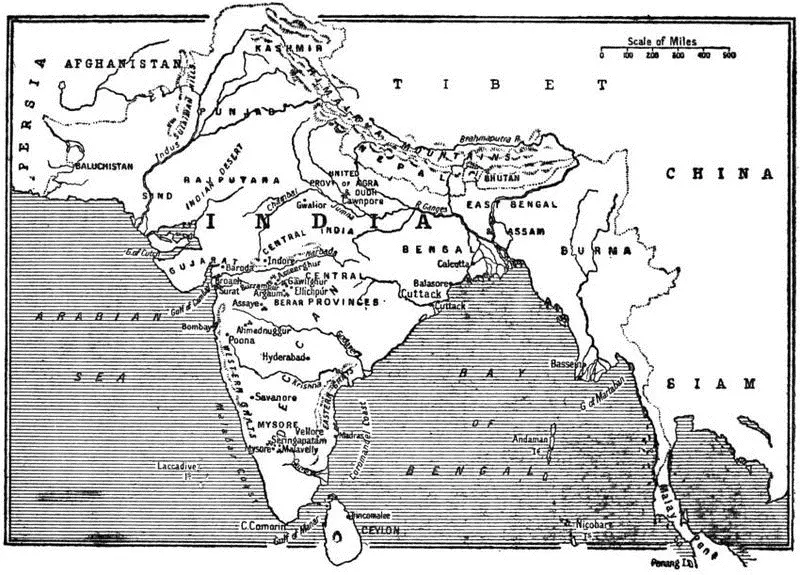Harold Wheeler - The Story of Wellington
Здесь есть возможность читать онлайн «Harold Wheeler - The Story of Wellington» — ознакомительный отрывок электронной книги совершенно бесплатно, а после прочтения отрывка купить полную версию. В некоторых случаях можно слушать аудио, скачать через торрент в формате fb2 и присутствует краткое содержание. Жанр: foreign_prose, История, foreign_edu, foreign_antique, на английском языке. Описание произведения, (предисловие) а так же отзывы посетителей доступны на портале библиотеки ЛибКат.
- Название:The Story of Wellington
- Автор:
- Жанр:
- Год:неизвестен
- ISBN:нет данных
- Рейтинг книги:3 / 5. Голосов: 1
-
Избранное:Добавить в избранное
- Отзывы:
-
Ваша оценка:
- 60
- 1
- 2
- 3
- 4
- 5
The Story of Wellington: краткое содержание, описание и аннотация
Предлагаем к чтению аннотацию, описание, краткое содержание или предисловие (зависит от того, что написал сам автор книги «The Story of Wellington»). Если вы не нашли необходимую информацию о книге — напишите в комментариях, мы постараемся отыскать её.
The Story of Wellington — читать онлайн ознакомительный отрывок
Ниже представлен текст книги, разбитый по страницам. Система сохранения места последней прочитанной страницы, позволяет с удобством читать онлайн бесплатно книгу «The Story of Wellington», без необходимости каждый раз заново искать на чём Вы остановились. Поставьте закладку, и сможете в любой момент перейти на страницу, на которой закончили чтение.
Интервал:
Закладка:
Shortly after his return to Calcutta the Colonel was placed in command of the forces in Madras. He also heard that his eldest brother had been offered the extremely responsible and difficult post of Governor-General in succession to Sir John Shore. It was now his turn to feed the flames of Mornington’s ambition. He writes: “I strongly advise you to come out. I am convinced that you will retain your health; nay, it is possible that its general state may be improved, and you will have the fairest opportunity of rendering material service to the public and of doing yourself credit.” Mornington lacked self-confidence, and a thousand and one doubts and fears possessed his mind. The Colonel reminded him that if he refused so advantageous a position on account of his young family, “you forego both for yourself and them what will certainly be a material and lasting advantage.”
Mornington accepted, and arrived at Calcutta with his youngest brother, Henry, as private secretary in the middle of May 1798. He speedily found an antidote for home-sickness in endeavouring to unravel the tangled skein of affairs in Mysore, where Tipú Sultan was intriguing with the French Republic for assistance in attacking the possessions of the East India Company in Southern India. The pugnacious character of the son of Hyder Ali was typified by the tiger’s stripes on his flag. He possessed the fanaticism and barbarity of the Oriental at his worst, and when opportunity occurred would feed a beast of prey with an English prisoner.

WELLINGTON’S CAMPAIGN IN INDIA.
To secure either the friendship or the neutrality of the Nizám, whose territory abutted that of the bloodthirsty Tipú, now became of paramount importance. His army was officered by Frenchmen, which was proof positive that in the event of war it would assist Britain’s enemy, although the Nizám had a distinct leaning towards the English. As it happened, the native troops mutinied against their officers, and, seizing his opportunity, the Nizám dismissed them. They were sent to England as prisoners, and subsequently allowed to return to their own country, a most humane consideration, for which Mornington was largely responsible. The military positions they formerly occupied were promptly filled by our own officers. A new treaty was made to preclude the Marhattás from allying themselves with Tipú, and a force of 6000 British troops was maintained by the Nizám at Hyderabad.
Meanwhile Wellesley had proceeded with his regiment to Madras, and, owing to the death of the senior officer, was placed in temporary command of the troops. In communication with Lord Clive, the Governor of the Presidency, and General Harris, the Commander-in-Chief, he busied himself with the multitudinous arrangements necessary for an advance upon Seringapatam, the capital of the Mysore Dominions. Horses, bullocks, and elephants had to be provided for the purpose of transport; forts equipped and provisioned; the siege train properly organized. He drew up a plan of campaign, and bent himself to the task with exacting energy. Notwithstanding the preparations for war, he still hoped that a resort to arms would prove unnecessary. Those who are apt to think that all military men delight in strife for the mere love of it will do well to remember this fact and judge less harshly, for Wellington is the typical representative of the British Army. But he believed in being ready, and hated nothing so much as “muddling through.”
There was still a possibility, though scarcely a probability, that Tipú would repent. He had received word that Napoleon, then on his famous Egyptian expedition, was coming to his aid with an “invincible army.” So far he had refused a definite statement of policy. Not until it was abundantly evident that the protracted negotiations of the Sultan of Mysore with the Government were merely to gain time, was a declaration of war issued on the 22nd February 1799. According to Wellesley, General Harris “expressed his approbation of what I had done, and adopted as his own all the orders and regulations I had made, and then said that he should mention his approbation publicly, only that he was afraid others would be displeased and jealous. Now as there is nothing to be got in the army except credit, and as it is not always that the best intentions and endeavours to serve the public succeed, it is hard that when they do succeed they should not receive the approbation which it is acknowledged by all they deserve. I was much hurt about it at the time, but I don’t care now, and shall certainly do everything to serve General Harris, and to support his name and authority.”
Wellesley never feared to speak his mind, as his voluminous dispatches abundantly testify. In a letter to Mornington he admits that he had “lectured” the Commander-in-Chief because he allowed the Madras Military Board too much license in the matter of appointments. On the other hand, he had “urged publicly to the army (in which I flatter myself I have some influence) the necessity of supporting him, whether he be right or wrong.” In his opinion it was “impossible” to hold the General “too high, if he is to be the head of the army in the field.”
Harris certainly compensated Wellesley to some extent by placing him in command of thirteen regiments, including the Nizám’s contingent, with the rank of brigadier. The strength of this force was about 16,000 men, that of the whole army 35,000, excluding 120,000 camp followers, the bugbear of the old-time commander. The Bombay corps under General Stuart attacked a portion of the enemy, commanded by the wily Tipú, in the vicinity of Sedasser, on the 6th March. This success augured well, for the Sultan was forced to retire.
Harris’s first serious engagement took place near Malavelly on the 27th, Wellesley advancing to the attack and turning Tipú’s right flank. After an engagement lasting three hours the enemy withdrew, with the loss of some 2000 men by death or wounds against the British 7 killed and 53 wounded. Tipú was a skilful soldier, and had not neglected to throw up a line of entrenchments before Seringapatam, into which city he now withdrew. To drive in the advanced outposts before definitely besieging the place was Harris’s first object. This duty was intrusted to Wellesley and Colonel Shaw respectively, each having charge of a detachment. It was the task of the former to carry a tope, or thicket, and a village called Sultanpettah. He failed, for reasons explained in the following letter:
“On the night of the 5th, we made an attack on the enemy’s outposts, which, at least on my side, was not quite so successful as could have been wished. The fact is, that the night was very dark, that the enemy expected us, and were strongly posted in an almost impenetrable jungle. We lost an officer, killed, and nine men of the 33rd wounded, and at last, as I could not find out the post which it was desirable I should occupy, I was obliged to desist from the attack, the enemy also having retired from the post. In the morning they re-occupied it, and we attacked it again at day-light, and carried it with ease and with little loss. I got a slight touch on the knee, from which I have felt no inconvenience, and I have come to the determination never to suffer an attack to be made by night upon an enemy who was prepared and strongly posted, and whose posts had not been reconnoitred by daylight.” It should be added that twelve soldiers were taken prisoner and executed by the brutal method of nails being driven through their heads, and that Wellesley had previously given it as his opinion that the projected attack on the thicket would be a mistake. The operation undertaken by Colonel Shaw was successful.
Читать дальшеИнтервал:
Закладка:
Похожие книги на «The Story of Wellington»
Представляем Вашему вниманию похожие книги на «The Story of Wellington» списком для выбора. Мы отобрали схожую по названию и смыслу литературу в надежде предоставить читателям больше вариантов отыскать новые, интересные, ещё непрочитанные произведения.
Обсуждение, отзывы о книге «The Story of Wellington» и просто собственные мнения читателей. Оставьте ваши комментарии, напишите, что Вы думаете о произведении, его смысле или главных героях. Укажите что конкретно понравилось, а что нет, и почему Вы так считаете.












